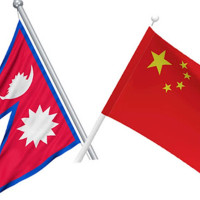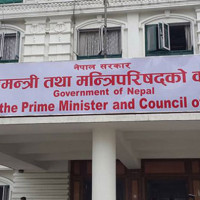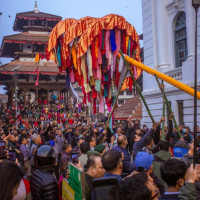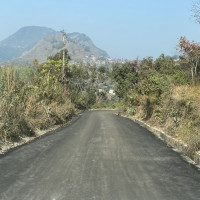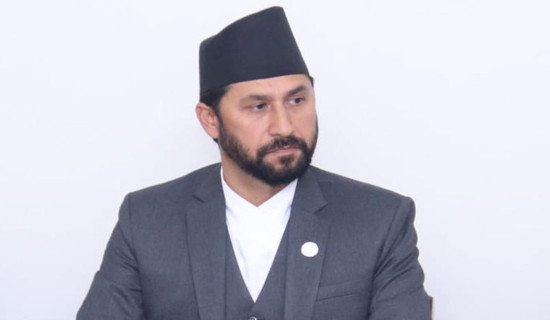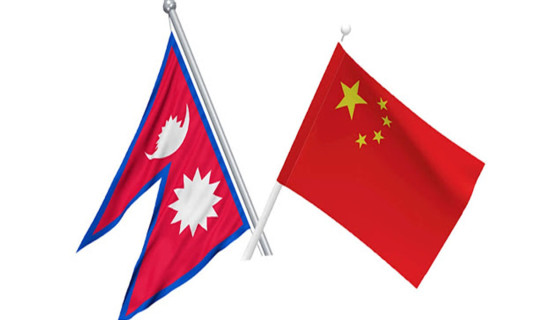- Tuesday, 24 February 2026
State, Sovereignty And Neighbourhood
The phenomenon of a nation state is imprinted into an individual's consciousness, which is why one constantly relates to the national anthem and other symbols. Within the state, a unique sense of belonging binds the population in fraternity despite vivid differences. This is referred to as a ‘patriot’ willing to safeguard the sovereignty of his/her state, while also keeping in mind the sovereignty of others. There is a feeling of loyalty to one’s motherland that needs to be sustained without any fear of external aggression or rebellion.
In 1945, the United Nations, an international institution, was established to maintain order at the global level. Critics point out the shortcomings in the structure of the UN as a handful of superpowers exercise veto power that is mostly abused to meet their vested geopolitical interest. Sometime mechanisms such as ‘peace-keeping missions, multinational corporations, financial aids, and international initiatives’ are seen to fulfill the interest of powerful countries. It is also argued that the veto powers exercised by five countries are sometime applied in a way that breaches the principles of non-intervention.
Utopian notion
The systemic flaw in the utopian idea of ‘an ideal’ state whereby the constitution, culture, and well-being remain independent of the neighbours is self-evident. For instance, despite the wrongdoings inflicted on each other during the 2nd World War, the camaraderie that now exists between the French and the Germans, makes it hard to believe that they were once adversaries.
Similarly, the cultural affinity shared between Nepal and India has strengthened solidarity between the two. Nevertheless, there is rooted perception that India meddles in the internal affairs of Nepal. For some, this is not true. India, the 5th largest economy in the world is considered as a ‘smart power’. States, as opined by a political theorist ‘Rudolf’, are like living organisms that are inevitably required to grow, expand, and contract for survival. India, like any other democracy, faces challenges that require immediate tackling, however, one may notice an apprehension while the truth is brushed under the carpet.
A government can enhance productivity, and loyalty among its citizens by transitioning from a business-like entity to a democratic one where the common good prevails over self-serving agendas. Nepal’s democracy will decay in the absence of visionaries who could aim to focus on responding to the collective needs of the masses, instead of political buck-passing. Such deflection of responsibilities saddens the populace and leaves them with no other option than to fly overseas for a better future.
Philosophers have acknowledged the distorted parts of human nature that seek instant gratification and momentary pleasure, regardless of the harm it inflicts on others (zero-sum game). In the end, it is all about survival but the moral conundrum lies in whether Nepal, sandwiched between colossal powers, can maintain autonomy, independence and sovereignty amidst the uncertainty.
Nepali democracy is still in its formative years with scope for improvements in transparency, accountability, good governance, and its democratic institutions, which have taken a backseat. Restoring checks and balances is crucial for Nepal’s long voyage towards a prosperous future, shaped by the leaders, policy makers, and judges, who are supposed to possess necessary knowledge of statecraft, strategy and competence.
Communism has indoctrinated its core values as a remedy for the domestic challenges in China. Likewise, democratic principles are championed in the United States, whose vision has resonated globally. Interestingly, India with its dynamic quasi-federal system, has not only become an economic powerhouse but has also exported its rich culture to the world. With the rapid escalation of globalisation, it is high time for Nepal to navigate through the socio-economic upheavals of all its neighbours.
Multilateral ties
Vatican City, with just around 800 people and 44 hectares of land, is still a sovereign state. No other state can question or challenge her identity. Nevertheless, around 32 million people reside in Nepal which has a total land area of 147,516 square kilometres. Given its relatively enormous size in comparison to smaller states and vice-versa, Nepal’s sovereignty will always remain a matter of utmost priority, integrity, and pride. Our geographical limitations should not inhibit any growth or deter us from fostering multilateral ties with distant states. This is the true essence of globalisation where ideas, goods, and people transcend borders to partake in the infinite spectrum of a global community.
Nepal, located in strategic geography, must build its national capacity to be a credible actor in the region and beyond. We can neither undo the errors of the past nor can we give in to historical amnesia. What we can do is re-invent what it means to be a Nepali, which is not only through symbols like Sagaramatha (Mt. Everest) Lord Buddha, handmade carpets, or even Yarsagumba, but as a state that stands with the indomitable spirit to survive.
(The author is an intern at the Institute of Foreign Affairs.)




